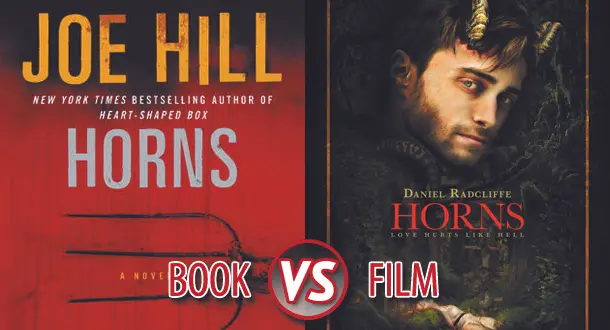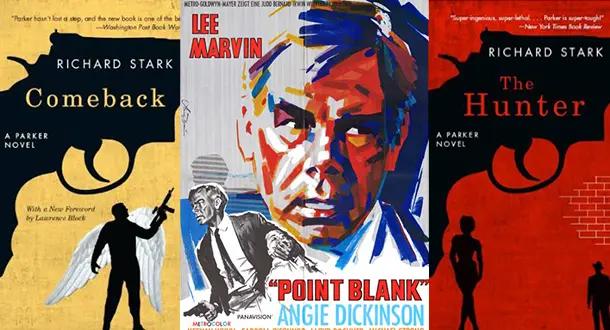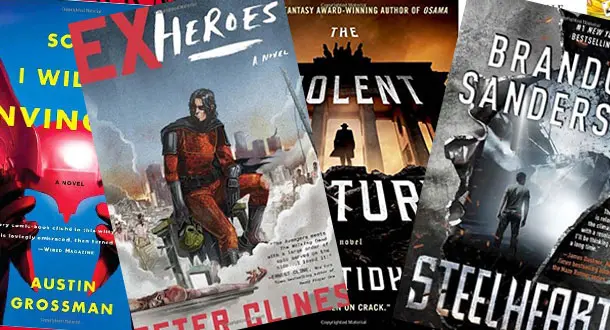Menu
Columns
Showing 3546 Columns
Showing 3546 Columns
March 30th, 2016

Flash fiction: A style of fictional literature marked by extreme brevity Welcome to LitReactor's Flash Fiction Smackdown, a monthly bout of writing prowess. How It Works We give you inspiration in the form of a picture, poem, video, or prompt. You write a flash fiction piece using the inspiration we gave you. Put your entry in the comments section. One winner will be picked and awarded a prize.
Read Column →March 30th, 2016

When it comes to the success or failure of a book adaptation, casting the prominent roles is essential. An actor that just isn't right for a particular role can make or break the quality of a film based on a novel. Sometimes, the actor in question seems born to play a particular role—like Brad Pitt as Tyler Durden in Fight Club; can anyone picture the character any other way now?
Read Column →March 29th, 2016

If you don't have anything nice to say, don't say anything at all. Isn't it convenient that the stupidest quote ever also provides its own defense against critique? But more to the point, I'll respond to this quote. Why say something mean? Because it's fun to say mean things sometimes. There's a bit of a backlash against the negative book review at the moment, and I'd like to make a case for why it's good, clean fun to get dirty in your reviews.
Read Column →March 29th, 2016

"What is his name?" "Parker." Mr. Carter frowned. "Doesn't he have a first name?" "I don't know it, Mr. Carter. He never called himself anything but Parker." -Richard Stark, The Hunter (1962)
Read Column →March 25th, 2016

From the new writer just finding her feet to the full-time professional, so many writers struggle with self-doubt. So much so that sometimes it’s crippling, even preventing us from doing the very thing we purport to love—writing. And it doesn’t get easier with professional sales. In fact, during a podcast conversation with Damien Angelica Walters she actually said she believes it gets harder. But there are coping strategies.
Read Column →March 24th, 2016

I really wanted to like this show. Gave it a sincere effort. On paper, the pitch is great: a bunch of secondary characters (heroes and villains) from DC’s popular series Arrow and The Flash get recruited by a time traveler to fight an immortal warlord named Vandal Savage throughout history. The stuff of Saturday morning cartoons rendered flesh on a primetime action adventure show. Who wouldn’t want to watch that?
Read Column →March 22nd, 2016

I'm going to let you in on a secret here. It's kind of technical, so you need to concentrate. Here goes. Writing well consists of two elements: 1) Big picture stuff (the story) 2) Small picture stuff (the words you use to tell the story) Now I'm going to let you in on another well-guarded secret. You might want to sit down before reading it, because this is radical. The only one of these two that matters, is the first one.
Read Column →March 22nd, 2016

While superheroes are incredibly popular both in comic books (the media format they were born in) and on the film screen, there is a small but steadily growing output of superhero fiction in novel and short story form.
Read Column →March 21st, 2016

Every March, a solid chunk of the US population goes a little mad, as Norman Bates put it. Except it's not at all like the madness he was talking about, but rather a fever pitch over a seemingly never-ending barrage of college basketball games and bracket-based gambling that culminates in a championship game at the end of the month.
Read Column →March 21st, 2016

Over two decades since its original release, Quentin Tarantino’s Reservoir Dogs is rightly hailed as a cult classic. So much so that Empire magazine named it the ‘Greatest Independent Film of all Time’. As with all of Tarantino’s work there were a great number of films and books that influenced Reservoir Dogs. Let’s explore a few of them. Great artists steal; they don’t do homages. –Quentin Tarantino
Read Column →🎼
Tell us about your book, and we'll give you a writing playlist
Take our 1 minute quiz to find your ideal tunes.